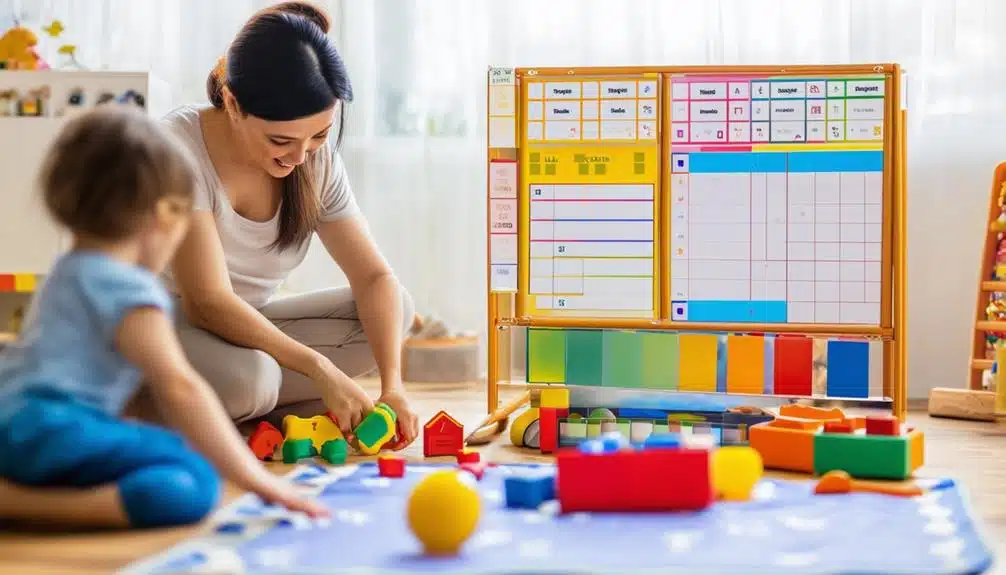Parenting is a journey—one that shapes not just children but entire families and even communities. In recent years, a remarkable shift has taken place in how parents approach raising their little ones. The age-old standard of “because I said so” is giving way to a new, more compassionate approach: gentle parenting.
Gentle parenting puts empathy, respect, and positive reinforcement at the center of the parent-child relationship. Instead of relying on punishments or harsh discipline, this philosophy encourages understanding, communication, and collaboration. If you’re curious about how gentle parenting works—and why it might be right for your family—read on.
What Is Gentle Parenting?
Gentle parenting is an evidence-based philosophy that focuses on fostering a deep connection and mutual respect between parent and child. This approach views children as individuals with their own emotions, needs, and rights—not just blank slates to be shaped by strict rules.
Gentle parenting recognizes that all behavior is communication. Instead of jumping straight to punishment when children misbehave, this method encourages caregivers to look beneath the surface. What is the child feeling? Why are they acting out? Responding with empathy helps children feel seen, heard, and valued.
Key Principles of Gentle Parenting
- Empathy: Understanding and validating your child’s emotions, even in tough moments.
- Respect: Treating children as individuals deserving of kindness and dignity.
- Positive Reinforcement: Encouraging desired behaviors through praise and rewards.
- Non-Punitive Discipline: Guiding children with compassion rather than fear or force.
Gentle Parenting vs. Traditional Discipline
Old-school discipline often relies on punishments, threats, or time-outs to correct behavior. The message is simple: “Follow the rules, or else.” While these tactics may achieve quick compliance, they rarely nurture the skills children need for emotional resilience or healthy relationships.
Why Discipline-First Tactics Fall Short
- Focus on Control: Traditional discipline is about controlling actions, not understanding feelings.
- May Breed Resentment: Fear-based methods can damage trust and reduce a child’s willingness to communicate.
- Short-Term Compliance: Children might follow rules to avoid punishment—but they don’t necessarily internalize the value of positive behaviors.
Gentle parenting, on the other hand, aims to teach rather than punish. It helps children develop self-regulation, empathy for others, and confidence in problem-solving.
The Role of Empathy in Parenting
Empathy is the ability to understand and share another person’s feelings. In gentle parenting, this isn’t just a warm and fuzzy add-on—it’s the foundation. Practicing empathy lets you see the world through your child’s eyes, especially during emotional storms.
How Empathy Changes Everything
Imagine your toddler throws a tantrum because you won’t buy candy at the checkout. Instead of snapping, “Stop crying, or you’re going to time-out,” gentle parenting encourages you to kneel down and say, “I see you’re upset. You really wanted that candy. It’s hard when we can’t have what we want.”
This small shift can work wonders. When kids feel understood, they’re more likely to calm down—and more willing to listen. Over time, this leads to fewer power struggles and more cooperation.
Positive Reinforcement: The Heart of Gentle Parenting
Positive reinforcement means acknowledging and rewarding good behavior, rather than only reacting to misbehavior. This simple yet powerful tool can transform your family dynamic.
How It Works
When your child picks up their toys without being asked, you might say, “Thank you for putting away your toys! That really helps me.” This praise reinforces helpful behavior and encourages it to happen again.
Rewards can come in many forms: words of encouragement, hugs, stickers, or one-on-one playtime. The key is consistency—let your child know you notice their efforts.
The Benefits of Positive Reinforcement
- Builds Self-Esteem: Children start to see themselves as helpful, capable, and valued.
- Encourages Internal Motivation: They act kindly and responsibly, not out of fear but from genuine desire.
- Strengthens Parent-Child Bond: Shared moments of positive interaction deepen trust and connection.
Moving Beyond “Quick Fixes”
Gentle parenting is not about permissiveness or ignoring bad behavior. Instead, it’s about proactive guidance—setting clear boundaries, explaining the reasons behind rules, and working together to solve problems.
Alternatives to Punishment
- Redirection: Guide your child’s attention from a negative behavior to a positive one.
- Natural Consequences: Allow children to experience the results of their actions in safe, supportive ways.
- Collaborative Problem Solving: Ask, “How can we fix this together?” This empowers kids to take responsibility without feeling shamed.
The Science Behind Gentle Parenting
Research supports the benefits of gentle parenting. Studies show that children raised with warmth, clear communication, and positive reinforcement tend to have:
- Stronger emotional regulation
- Better social skills
- Higher self-esteem
- Lower rates of anxiety and aggression
By modeling empathy and respect, parents help their children develop essential life skills that last well beyond childhood.
Gentle Parenting in Everyday Life
Adopting a gentle approach doesn’t require perfection. In fact, modeling how to apologize, self-correct, and stay calm under pressure can be just as powerful as any lesson you teach.
Here are some gentle parenting strategies you can try today:
Daily Gentle Parenting Tips
- Pause before reacting. Breathe, then respond thoughtfully.
- Use “I” statements: “I feel worried when you run off in the parking lot.”
- Offer choices: “Would you like to brush your teeth before or after pajamas?”
- Validate emotions, even if you disagree with the behavior.
- Stay consistent, and recognize effort, not just outcomes.
Overcoming Challenges
Let’s be honest—gentle parenting isn’t always easy, especially if you grew up with different models. It takes practice, patience, and self-reflection. You may face criticism or doubt from others used to traditional discipline—but the long-term rewards for your family are well worth it.
Remember, gentle parenting does not mean giving in to every demand. Clear boundaries are crucial, but they can be enforced with compassion.
Conclusion: Why Gentle Parenting Matters
Gentle parenting is more than just a trend—it’s a movement toward raising kind, confident, and emotionally intelligent children. By leading with empathy and reinforcing positive behavior, you help your child develop the skills they need to thrive in a complex world.
It’s never too late to start. Whether your child is a toddler or a teenager, every day is an opportunity to build a deeper, more trusting connection.
A Strong Call-to-Action
Ready to transform your parenting journey? Start today by tuning into your child’s needs and celebrating their small victories. Share your gentle parenting experiences and questions in the comments below—let’s support each other!
Remember, gentle parenting is a journey, not a destination—and every step you take brings you and your child closer together.






